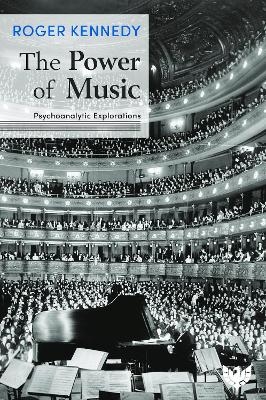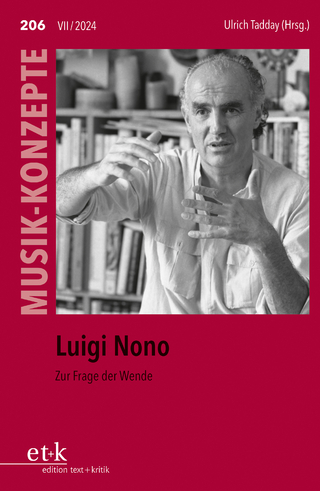
The Power of Music
Phoenix Publishing House (Verlag)
978-1-912691-73-9 (ISBN)
Emotion is an integral aspect of musical experience; music has the power to take us on an emotional and intellectual journey, transforming the listener along the way. The aim of this book is to examine the nature of this journey, using a variety of perspectives. No one discipline can do justice to music’s complexity if one is to have a sense of the whole musical experience, even if one has to break up the whole experience into various elements for the purposes of clarification.
The issues raised have some relationship to psychoanalytic understanding and listening, as after all psychoanalysis is a listening discipline; its bedrock is listening to the patient’s communications. While of course there are significant differences between understanding of, and listening to, a musical performance and a patient in a consulting room, the book explores common ground.
Evidence from neuroscience indicates that music acts on a number of different brain sites, and that the brain is likely to be hard-wired for musical perception and appreciation, and this offers some kind of neurological substrate for musical experiences, or a parallel mode of explanation for music’s multiple effects on individuals and groups.
After various excursions into early mother/baby experiences, evolutionary speculations, and neuroscientific findings, the book’s main emphasis is that it is the intensity of the artistic vision which is responsible for music’s power. That intense vision invites the viewer or the listener into the orbit of the work, engaging us to respond to the particular vision in an essentially intersubjective relationship between the work and the observer or listener. This is the area of what we might call the human soul. Music can be described as having soul when it hits the emotional core of the listener. And, of course, there is ‘soul music’, whose basic rhythms reach deep into the body to create a powerful feeling of aliveness. One can truly say that music of all the arts is most able to give shape to the elusive human subject or soul.
Dr Roger Kennedy is a consultant child and adolescent psychiatrist and an adult psychoanalyst. He was an NHS consultant in charge of the Family Unit at the Cassel Hospital for nearly 30 years before going totally into private practice ten years ago. He was chair of The Child and Family Practice in Bloomsbury and is still a director there. His work includes being a training analyst and seeing adults for analysis and therapy, as well as children, families, and parents at his clinic. He is a past President of the British Psychoanalytical Society, and is well-known as an expert witness in the family courts. He has had 13 previous books published on psychoanalysis, interdisciplinary studies, and child, family and court work, as well as many papers.
About the author
CHAPTER ONE
Overture
CHAPTER TWO
Early musical experience as a root of music’s power
CHAPTER THREE
Origins of music’s power
CHAPTER FOUR
Music and emotion, first movement
CHAPTER FIVE
Music and emotion, second movement
CHAPTER SIX
Finale – Musical and Psychoanalytic Connections
References
Index
| Erscheinungsdatum | 10.05.2021 |
|---|---|
| Sprache | englisch |
| Maße | 152 x 229 mm |
| Gewicht | 306 g |
| Themenwelt | Kunst / Musik / Theater ► Musik ► Musiktheorie / Musiklehre |
| Geisteswissenschaften ► Psychologie ► Psychoanalyse / Tiefenpsychologie | |
| Naturwissenschaften ► Biologie ► Humanbiologie | |
| Naturwissenschaften ► Biologie ► Zoologie | |
| ISBN-10 | 1-912691-73-6 / 1912691736 |
| ISBN-13 | 978-1-912691-73-9 / 9781912691739 |
| Zustand | Neuware |
| Informationen gemäß Produktsicherheitsverordnung (GPSR) | |
| Haben Sie eine Frage zum Produkt? |
aus dem Bereich


